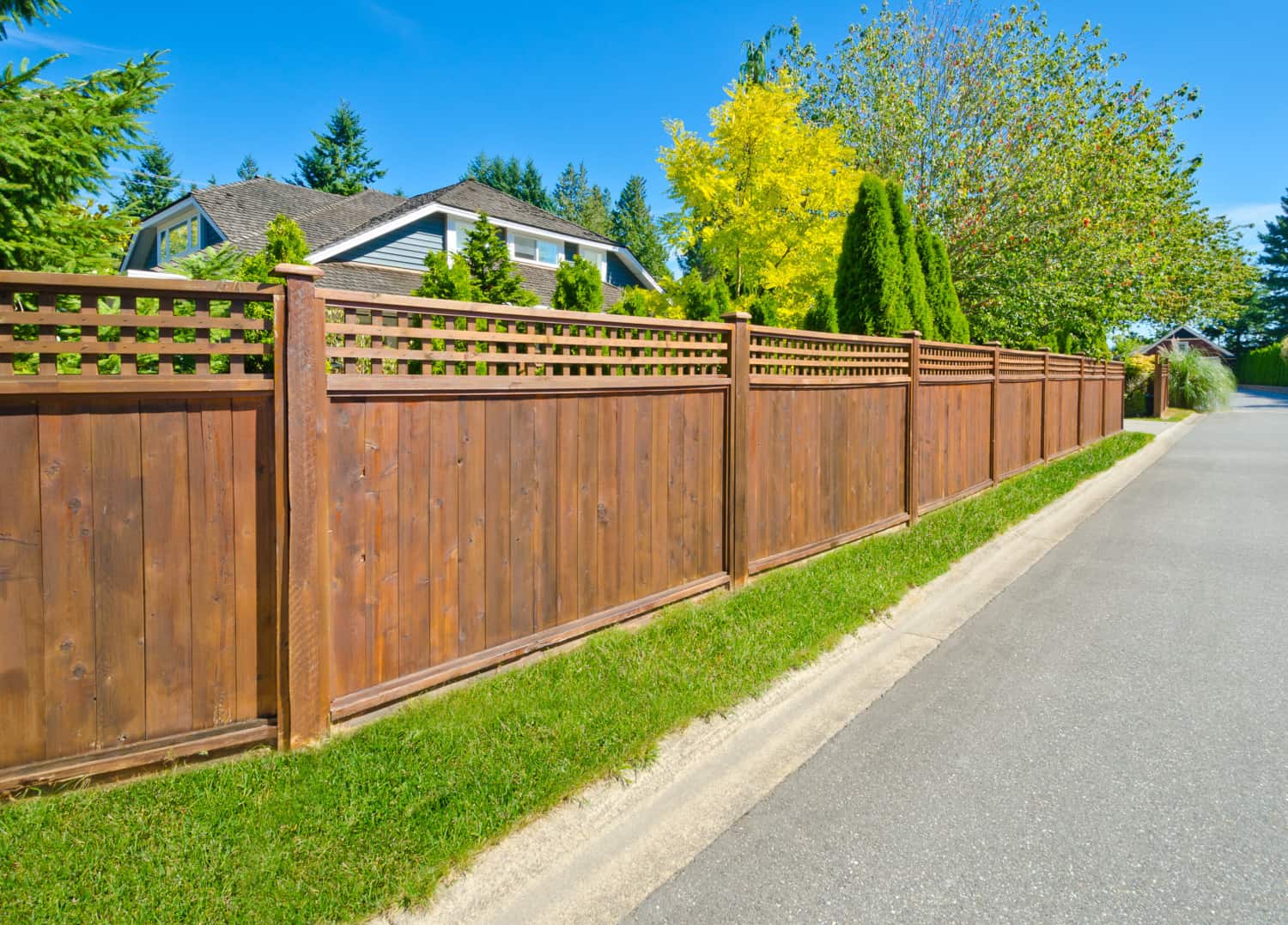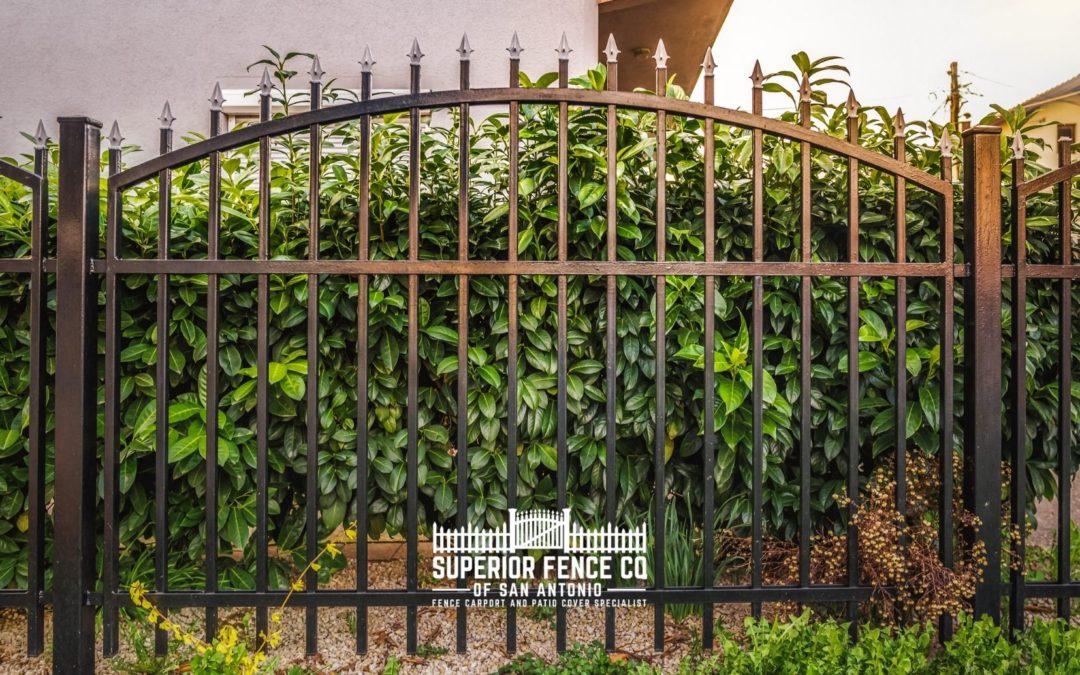All Categories
Featured
If you're considering installing a fencing around your building, understanding the license requirements in your area is essential. In this guide, we'll break down the different permits you might need to mount a fencing and just how to guarantee your task stays certified with neighborhood laws.
Why Are Permits Essential for Fence Installation? Authorizations are needed to guarantee that the fence you build adheres to local structure codes, zoning guidelines, and security criteria. They guarantee that the fence won't block energies, traffic flow, or create risks for pedestrians.
![]()
Kinds Of Permits You Might Need. Structure Permit. A structure permit is the most typical demand for setting up a fencing. If your fencing surpasses a specific height (typically around 6 feet), you may require to get a building license.
Zoning Authorization. Zoning regulations govern land usage in your area, and they usually control where fencings can be installed, along with exactly how high they can be. A zoning authorization makes certain that your fence adheres to these policies. Your fence could need to be established back a specific distance from sidewalks or residential or commercial property lines. Zoning regulations can vary by neighborhood, so it's critical to check the details rules that relate to your area.
Homeowners Organization (HOA) Authorization. You may need authorization before setting up a fencing if your residential property is component of a house owners association. HOAs frequently have rigorous regulations pertaining to the kind, design, and materials utilized for fences to preserve an uniform look throughout the neighborhood. The HOA may require you to submit comprehensive plans or request approval prior to setup. See to it you adhere to these guidelines to stay clear of prospective penalties or charges.
Specialty Permits. Sometimes, you might require specialty permits based on the area of your building or the nature of your fencing. As an example, if your residential property is in a flooding zone, you may require added authorizations to make certain that your fencing does not obstruct drainage or water flow. Likewise, if you plan to build a fence near an eco protected location, you may need a special authorization to conform with environmental regulations.
![]()
Utility Easements and Utility Business Approvals. Some residential properties have energy easements, which are areas marked for energy lines, cords, or pipes. Prior to setting up a fencing, you should inspect if your residential property has an easement. Building a fencing within an easement could hinder energy maintenance or damages underground lines. You might need approval from the utility business or neighborhood authorities prior to waging the setup.
Exactly How to Determine Which Allows You Required. Talk To Neighborhood Authorities. The initial step in establishing the authorizations called for is to contact your neighborhood building division or zoning workplace. They can supply particular information regarding what permits are essential for your area. Many cities have on the internet sources or portals where you can examine the demands and even obtain a permit online.
Consult a Specialist Fencing Professional. A neighborhood fencing service provider is usually familiar with the license procedure and regional policies. They can assist you browse the needs and make certain that your project is certified. Numerous professionals additionally manage the authorization application process on your part, saving you time and initiative.
Evaluation Your Community's HOA Standards. Make certain to review their standards prior to applying for any type of licenses if you live in a neighborhood governed by an HOA. The HOA might need particular designs, products, or height restrictions for fencings within the community. Submit your plans to them for authorization prior to continuing.
![]()
Consequences of Not Obtaining an Authorization. Setting up a fence without the required permits can lead to significant consequences. Potential customers may think twice to acquire a property with an unpermitted fencing, especially if it's in infraction of zoning laws.
Conclusion. Before installing a fencing on your home, make sure you recognize the neighborhood guidelines and obtain any type of essential licenses. Structure licenses, zoning authorizations, HOA authorizations, and specialty permits all play a critical function in guaranteeing that your fence is secure, legal, and compliant.
Why Are Permits Essential for Fence Installation? Authorizations are needed to guarantee that the fence you build adheres to local structure codes, zoning guidelines, and security criteria. They guarantee that the fence won't block energies, traffic flow, or create risks for pedestrians.

Kinds Of Permits You Might Need. Structure Permit. A structure permit is the most typical demand for setting up a fencing. If your fencing surpasses a specific height (typically around 6 feet), you may require to get a building license.
Zoning Authorization. Zoning regulations govern land usage in your area, and they usually control where fencings can be installed, along with exactly how high they can be. A zoning authorization makes certain that your fence adheres to these policies. Your fence could need to be established back a specific distance from sidewalks or residential or commercial property lines. Zoning regulations can vary by neighborhood, so it's critical to check the details rules that relate to your area.
Homeowners Organization (HOA) Authorization. You may need authorization before setting up a fencing if your residential property is component of a house owners association. HOAs frequently have rigorous regulations pertaining to the kind, design, and materials utilized for fences to preserve an uniform look throughout the neighborhood. The HOA may require you to submit comprehensive plans or request approval prior to setup. See to it you adhere to these guidelines to stay clear of prospective penalties or charges.
Specialty Permits. Sometimes, you might require specialty permits based on the area of your building or the nature of your fencing. As an example, if your residential property is in a flooding zone, you may require added authorizations to make certain that your fencing does not obstruct drainage or water flow. Likewise, if you plan to build a fence near an eco protected location, you may need a special authorization to conform with environmental regulations.

Utility Easements and Utility Business Approvals. Some residential properties have energy easements, which are areas marked for energy lines, cords, or pipes. Prior to setting up a fencing, you should inspect if your residential property has an easement. Building a fencing within an easement could hinder energy maintenance or damages underground lines. You might need approval from the utility business or neighborhood authorities prior to waging the setup.
Exactly How to Determine Which Allows You Required. Talk To Neighborhood Authorities. The initial step in establishing the authorizations called for is to contact your neighborhood building division or zoning workplace. They can supply particular information regarding what permits are essential for your area. Many cities have on the internet sources or portals where you can examine the demands and even obtain a permit online.
Consult a Specialist Fencing Professional. A neighborhood fencing service provider is usually familiar with the license procedure and regional policies. They can assist you browse the needs and make certain that your project is certified. Numerous professionals additionally manage the authorization application process on your part, saving you time and initiative.
Evaluation Your Community's HOA Standards. Make certain to review their standards prior to applying for any type of licenses if you live in a neighborhood governed by an HOA. The HOA might need particular designs, products, or height restrictions for fencings within the community. Submit your plans to them for authorization prior to continuing.

Consequences of Not Obtaining an Authorization. Setting up a fence without the required permits can lead to significant consequences. Potential customers may think twice to acquire a property with an unpermitted fencing, especially if it's in infraction of zoning laws.
Conclusion. Before installing a fencing on your home, make sure you recognize the neighborhood guidelines and obtain any type of essential licenses. Structure licenses, zoning authorizations, HOA authorizations, and specialty permits all play a critical function in guaranteeing that your fence is secure, legal, and compliant.
Latest Posts
Take Advantage of Special Auto Repair Offers in Chicago at Montclare Auto Repair
Published en
1 min read
Secure and Improve Your Home with Weathercraft's Exterior siding Solutions
Published en
1 min read
Explore Budget-Friendly Auto Repairs with Montclare’s Monthly Service Specials
Published en
1 min read
More
Latest Posts
Take Advantage of Special Auto Repair Offers in Chicago at Montclare Auto Repair
Published May 28, 25
1 min read
Secure and Improve Your Home with Weathercraft's Exterior siding Solutions
Published May 25, 25
1 min read
Explore Budget-Friendly Auto Repairs with Montclare’s Monthly Service Specials
Published May 24, 25
1 min read